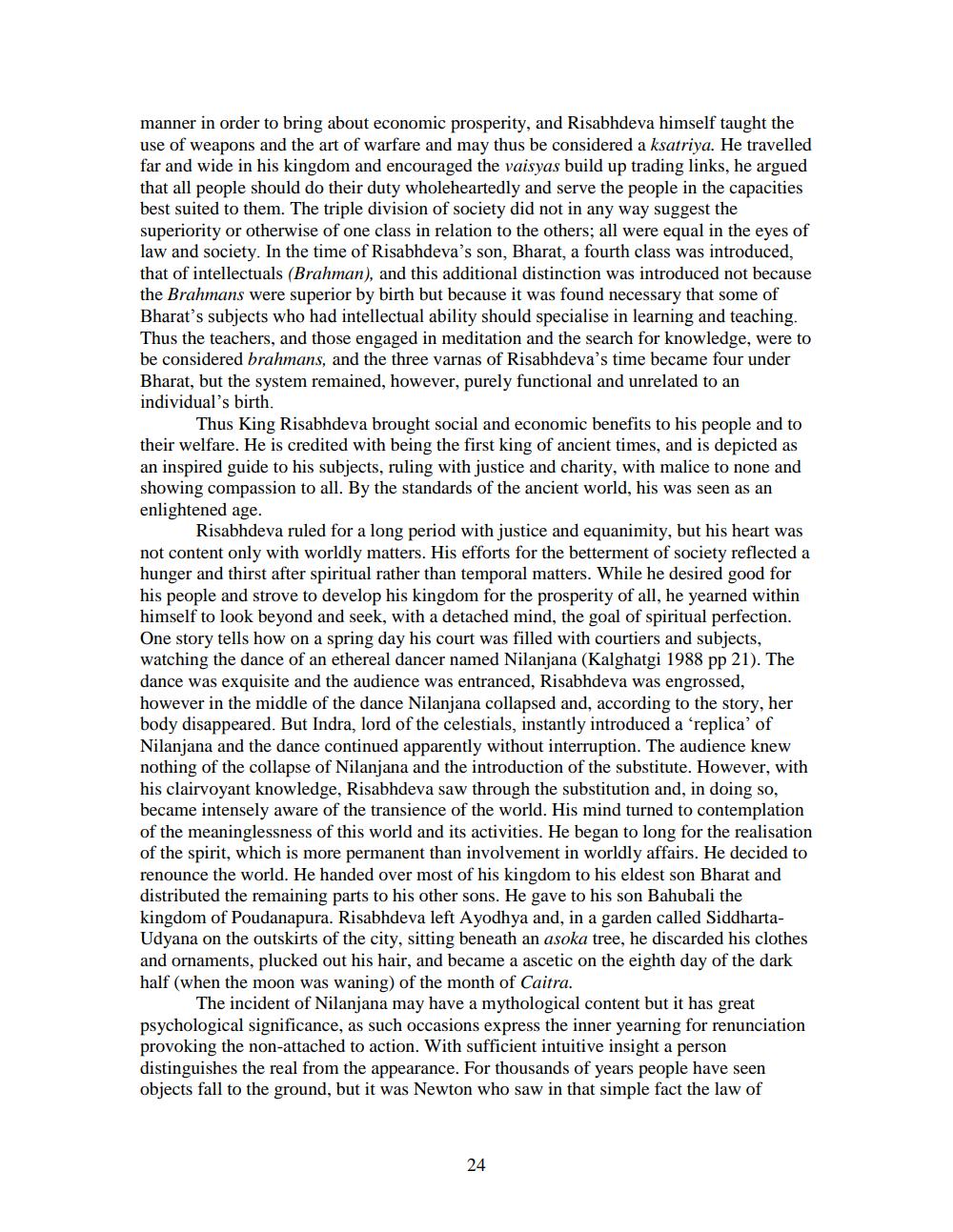________________
manner in order to bring about economic prosperity, and Risabhdeva himself taught the use of weapons and the art of warfare and may thus be considered a ksatriya. He travelled far and wide in his kingdom and encouraged the vaisyas build up trading links, he argued that all people should do their duty wholeheartedly and serve the people in the capacities best suited to them. The triple division of society did not in any way suggest the superiority or otherwise of one class in relation to the others, all were equal in the eyes of law and society. In the time of Risabhdeva's son, Bharat, a fourth class was introduced, that of intellectuals (Brahman), and this additional distinction was introduced not because the Brahmans were superior by birth but because it was found necessary that some of Bharat's subjects who had intellectual ability should specialise in learning and teaching. Thus the teachers, and those engaged in meditation and the search for knowledge, were to be considered brahmans, and the three varnas of Risabhdeva's time became four under Bharat, but the system remained, however, purely functional and unrelated to an individual's birth.
Thus King Risabhdeva brought social and economic benefits to his people and to their welfare. He is credited with being the first king of ancient times, and is depicted as an inspired guide to his subjects, ruling with justice and charity, with malice to none and showing compassion to all. By the standards of the ancient world, his was seen as an enlightened age.
Risabhdeva ruled for a long period with justice and equanimity, but his heart was not content only with worldly matters. His efforts for the betterment of society reflected a hunger and thirst after spiritual rather than temporal matters. While he desired good for his people and strove to develop his kingdom for the prosperity of all, he yearned within himself to look beyond and seek, with a detached mind, the goal of spiritual perfection. One story tells how on a spring day his court was filled with courtiers and subjects, watching the dance of an ethereal dancer named Nilanjana (Kalghatgi 1988 pp 21). The dance was exquisite and the audience was entranced, Risabhdeva was engrossed, however in the middle of the dance Nilanjana collapsed and, according to the story, her body disappeared. But Indra, lord of the celestials, instantly introduced a 'replica' of Nilanjana and the dance continued apparently without interruption. The audience knew nothing of the collapse of Nilanjana and the introduction of the substitute. However, with his clairvoyant knowledge, Risabhdeva saw through the substitution and, in doing so, became intensely aware of the transience of the world. His mind turned to contemplation of the meaninglessness of this world and its activities. He began to long for the realisation of the spirit, which is more permanent than involvement in worldly affairs. He decided to renounce the world. He handed over most of his kingdom to his eldest son Bharat and distributed the remaining parts to his other sons. He gave to his son Bahubali the kingdom of Poudanapura. Risabhdeva left Ayodhya and, in a garden called SiddhartaUdyana on the outskirts of the city, sitting beneath an asoka tree, he discarded his clothes and ornaments, plucked out his hair, and became a ascetic on the eighth day of the dark half (when the moon was waning) of the month of Caitra.
The incident of Nilanjana may have a mythological content but it has great psychological significance, as such occasions express the inner yearning for renunciation provoking the non-attached to action. With sufficient intuitive insight a person distinguishes the real from the appearance. For thousands of years people have seen objects fall to the ground, but it was Newton who saw in that simple fact the law of
24




